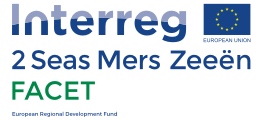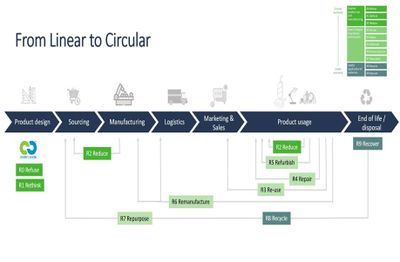One of the goals within the FACET project is to facilitate the development of circular economy communities. By building different forms of cooperation, the project partners hope that entrepreneurs will find each other to be able to, inspire, coordinate, and encourage each other in adopting circular solutions.
In the first step, project partners bring different entrepreneurs together to create new value chains. In doing so, they look at existing cooperation systems that allow mutual benefits and value creation to be adopted and tested within the project. Entrepreneurs will learn from each other and models will be developed for dissemination and roll-out. HZ University of Applied Sciences did desk research and, in collaboration with the University of Greenwich, they decided upon a definition and developed a suitable theoretical model. This model will be tested during the project.
When adopting circular solutions, entrepreneurs may face various challenges for example sourcing and purchasing. HZ University of Applied Sciences has therefore, in collaboration with University of Greenwich developed a suitable joint purchasing/collaborative model for entrepreneurs. This to support each other in adopting circular solutions, exchange information about the purchase of resource and obtain better offers by joint purchase. In this process, the project partners analyzed the possibilities of joint purchasing and contracting, both locally and cross-border, with an eye on reducing the costs of circular products and facilitating uptake. Also, various best practices towards adopting Joint Purchase have been collected for entrepreneurs as inspiration.
In addition, stakeholders’ networks are needed to improve the coordination between local authorities, sectoral agencies, and entrepreneurs. Therefore, HZ University of Applied Sciences defined, based on desk research, “Quadruple Helix (QH) support teams” and how they can be established. It will give entrepreneurs the opportunity to work with local authorities, business support agencies and the public to improve conditions and services in adopting circular solutions. The circular value chain model will help to explore the “needs” of the entrepreneur in implanting the circular solution and how a support group can be of support.

